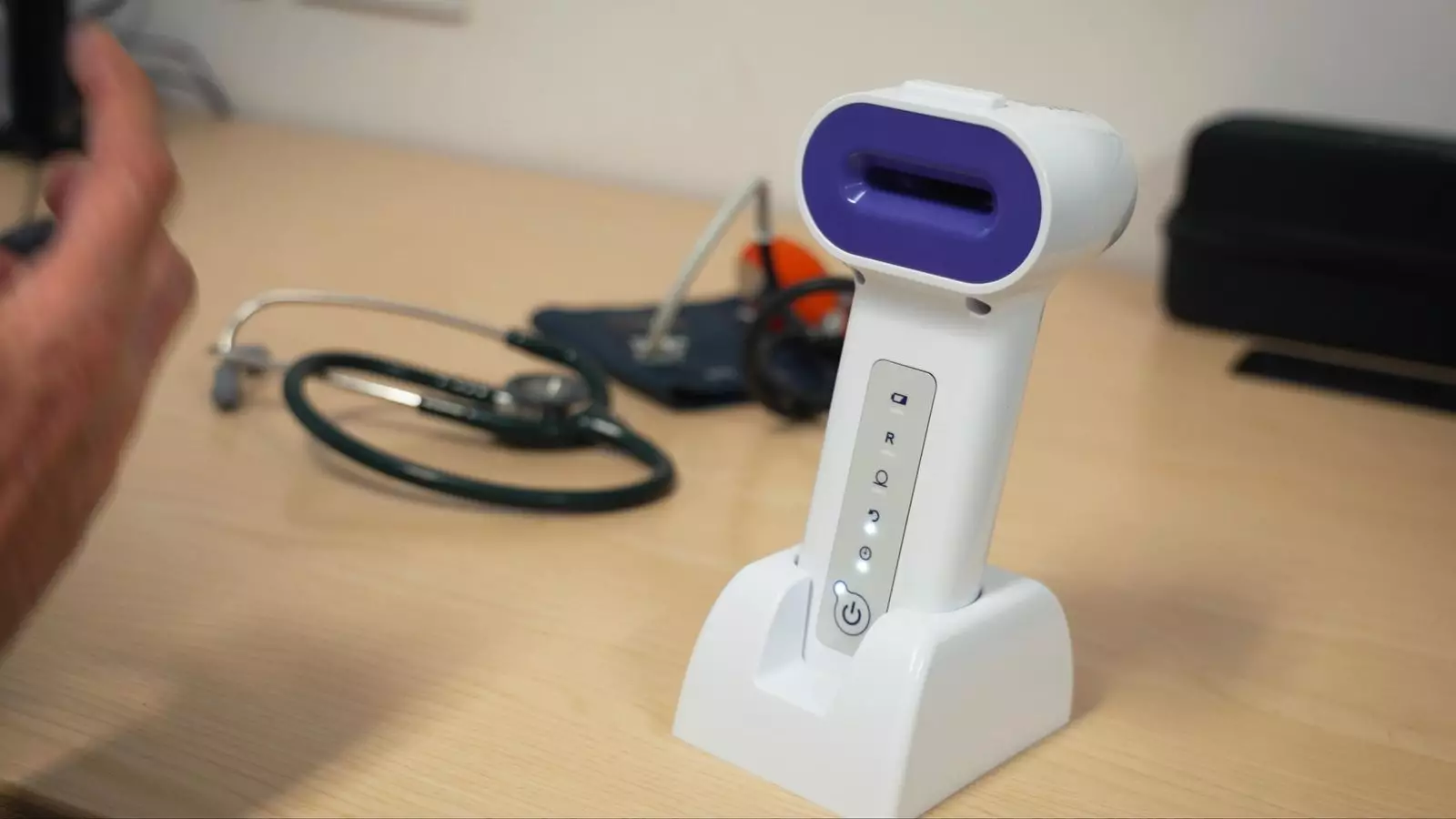Chronic Obstructive Pulmonary Disease (COPD) is a health crisis lurking in the shadows, affecting over 3 million individuals in the UK alone. Disturbingly, around two-thirds of these patients remain unaware of their condition, making it the second leading cause of emergency hospital admissions. Despite the advances in medical technology, diagnosis has been hampered by the traditional methods, leaving many in a limbo of uncertainty while suffering in silence. The current gold standard, biennially administered spirometry tests, requires a time commitment that most patients cannot afford, subjecting them to tiresome procedures that often lead to delayed care.
The very essence of healthcare should be its accessibility, yet the convolutions of the current diagnostic methods create a stark barrier that ultimately leads to detrimental consequences. Add to this the necessity for specialized training and subsequent appointments in centralized hubs, and one wonders whether the system is effectively serving those it promises to help.
AI to the Rescue: A Promise of Immediate Diagnosis
Enter the N-Tidal Diagnose, a novel handheld device promising transformative change in diagnosing COPD. The prospect of walking into a doctor’s office and walking out just five minutes later with a diagnosis is nothing short of revolutionary. Dr. Simon Rudland, a general practitioner in Suffolk, emphasizes a crucial point: “This device completely changes the whole pathway.” This is not merely a technical innovation; it represents a philosophical shift in how we approach patient care.
Rather than relying on a drawn-out and labor-intensive spirometry test, the N-Tidal Diagnose uses artificial intelligence to analyze a patient’s exhalation and connect to a cloud platform that processes the data in real-time. This immediate feedback loop allows healthcare providers to diagnose and initiate treatment at an unprecedented speed. Imagine not waiting for weeks to find out whether you’re on the right medication — that is the kind of paradigm shift this device heralds.
Real Stories, Real Impact
Consider the case of Colin Best, 67, whose arduous journey through a diagnostic labyrinth took him over a year of struggling and repeated spirometry tests. His experience encapsulates the frustration and distress that many COPD sufferers endure. The tiredness from a prolonged testing regime, coupled with the psychological burden of an unseen illness, is more than just a nuisance; it is a genuine health crisis that demands immediate attention.
With the N-Tidal Guarantee, Colin’s vexing experience would have been drastically different. Instead of multiple exhausting tests, he could have simply breathed normally into the device and gotten an instant assessment. This is not a mere convenience; it’s an essential breakthrough in mental health, too. Knowing promptly about a chronic illness opens up an aperture for much-needed emotional relief — something that can provide hope and clarity.
A Transformative Tool for a Strained NHS
However, this healthcare miracle is coming at a critical time when the NHS is grappling with budgetary constraints. The hope is that this inexpensive diagnostic option can ease some of the burden on a strained system. By enabling quick and accurate diagnoses, the N-Tidal Diagnose could drastically lessen hospital admissions related to COPD flare-ups. One in eight hospital admissions is attributed to such flare-ups, but the sooner patients are treated — ideally before they hit crisis mode — the better the long-term prognosis.
Dr. Ameera Patel, CEO of TidalSense, highlights a pivotal element of the device — the extensive data set it draws upon for AI learning. With over 2.5 million patient breath samples cataloged, the machine learning algorithm is not just efficient, but precise, distinguished COPD from other conditions that often present similar symptoms. This strategic approach amplifies the potential for the healthcare system to operate efficiently, ultimately improving not just patient outcomes, but also the economic viability of health services overall.
Embracing technological advancements can reduce delays, streamline processes, and potentially save lives. As a society, we must advocate for adopting such forward-thinking technologies that prioritize patient welfare and alleviate the excessive burdens on our healthcare systems.


Leave a Reply